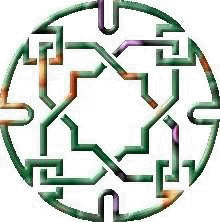

|
|

Abbas Mahmoud El'Akkad

Abbas Mahmoud El'Akkad (1889-1964), poet, literature critic and politician; one of the most important modernist writers and thinkers of the liberal era in modern Egypt.
His life
El'Akkad was born in Aswan the well known tourist city in southern Egypt; he was graduated from the elementary school on 1903 and did not continue his formal education due to the poor conditions of his family at that time. During his early youth he worked in a factory of silk and as an employer in the rail ways. However, he was obsessed by reading and acquiring knowledge in different fields. He worked as a clerk in Quena in Upper Egypt as well as other occupations until he started to write in newspapers, as a consequence of his wide intellect and knowledge.
In this period he joined Mohammad Farid Wagdy in issuing a new newspaper called "The Convention" (Aldustour in Arabic). After sometime the newspaper has been closed and he worked as a private teacher for sometime for living. His intellectual and literary production has never seized, he wrote regular articles in different magazines and newspapers. He was offered the national prize for literature during the rule of Gamal Aboulnasser in the fifties but he refused the prize. He also refused the honoree Ph. D. from Cairo University.
His Thought
El'Akkad is know with his aesthetic views in poetry and literature. Due to his renewal views he may be considered as one of the leaders of the transition period of Arabic literature from the traditional to the modern style of writing. Within these views he founded with Ibrahim Almazny and Aboulrahman Shukry the poetry school 'Aldiwan' which aimed at giving up the old traditional style of Arabic poetry.
His writings express deep knowledge of the Arabic language as well as a rational and thoughtful style. He is also well known by his rational analytic view in defending the profit Mohammad and his close followers in his well known series "The geniuses" started by his book 'The genius of Mohammad".
Political Life
El'Akkad was also well known by his self confidence and especially in his political positions either in his writings in different newspapers or in his engagement with the 'liberal conventionalist party'. He defied despotism and called for destroying the highest head in the country if it outbreaks the Egyptian 'Convention'. As a result he was sent to prison for a few months for the accusation of insulting the personality of the Egyptian king.
His Works
El'Akkad wrote several poetical collections starting from 1916, and indulged into several intellectual confrontations against several well known Egyptian thinkers defending his convictions about poetry and literature. His works are numerous, among them:
· God
· The genius of Mohammad.
· The genius of Jesus
· The genius of righteous
· The genius of Omar
· The genius of Othman
· The genius of Al-Emam Aly
· The genius of Khaled
· The caller of the heaven Belal
· The daughter of the righteous
· Al-Hussein the father of the martyrs
· Amr Ibn Al'ass
· Mu'away Ibn Abi Sufian
· Fatima Al-Zahraa
· Al-fatemyoun
· The truths of Islam and the falsity of its contenders
· The Qur'anic philosophy
· Thought is an Islamic duty
· The emanation of the light
· Democracy in Islam
· Human being in the holly Qur'an
· Islam in the twentieth century
· What is said about Islam
· Me
· The opium of the peoples
· This tree
· The funny Guha
· Love affairs of El'Akkad
· The great soul of al-mahatma Gandy
· The life of a pen
· Sara
· The beginnings of the Mohammedan mission
· No for communism and colonialism
· Sa'ad Zaghloul
· Ibn Elroumy: his life and poetry
· Zionism and the issue of Palestine